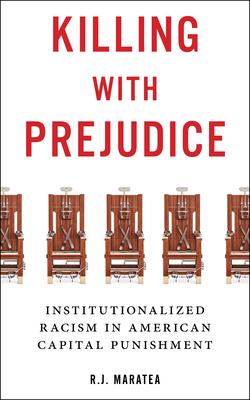In Killing with Prejudice, R.J. Maratea chronicles the entire litigation process which culminated in what has been called "the Dred Scott decision of our time." Ultimately, the Supreme Court chose to overlook compelling empirical evidence that revealed the discriminatory manner in which the assailants of African Americans are systematically undercharged and the aggressors of white victims are far more likely to receive a death sentence. He draws a clear line from the lynchings of the Jim Crow era to the contemporary acceptance of the death penalty and the problem of mass incarceration today.
The McCleskey decision underscores the racial, socioeconomic, and gender disparities in modern American capital punishment, and the case is fundamental to understanding how the death penalty functions for the defendant, victims, and within the American justice system as a whole.
